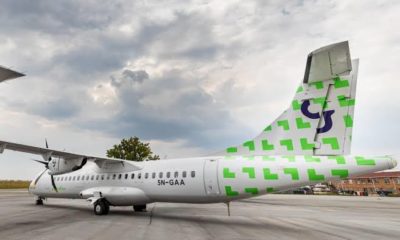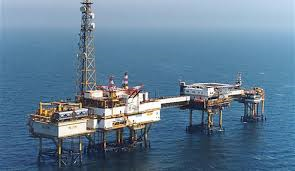NEWS
Smuggled Nigerian Petrol Hits ₦1,700/litre In West Africa
Amidst a surge in petrol smuggling activities, the Federal Government has voiced concern over the widening price gap between Nigeria and its neighboring countries.
With petrol prices soaring to N1,700 per liter in West African markets, compared to Nigeria’s average of N701 per liter, authorities fear the repercussions of this illicit trade.
The Nigeria Customs Service’s Comptroller-General, Adewale Adeniyi, emphasized the urgent need for collaborative efforts with the Office of the National Security Adviser to combat the escalating challenge.
He said: “Today, we are here to update members of the public on the strategic efforts of the Nigeria Customs Service in addressing the critical issue of fuel smuggling through the recently launched Operation Whirlwind, under the auspices of the Office of the National Security Adviser.
“About a year ago, the Federal Government made the bold strategic decision to remove the fuel subsidy. This crucial step was aimed at freeing up substantial funds that could be redirected to other productive sectors of the economy, reducing pressure on our foreign exchange reserves, and diversifying economic growth.
“The immediate impact was an upward adjustment in fuel prices to reflect current realities. Despite the inflationary pressures and financial strain on households, particularly those with lower incomes, comparative studies still show that fuel prices in Nigeria remain the cheapest compared to other countries in the West and Central African region,”
“While PMS is sold at an average of N701.99 in Nigeria, it is sold at an average of N1,672.05 in the Republic of Benin and N2,061.55 in Cameroon. In other countries around the region, the price of PMS ranges from N1,427.68 in Liberia to N2,128.20 in Mali, averaging N1,787.57, according to the fuel price data obtained from opensource.”
“The (NMDPRA) report shows significant changes in evacuation patterns that are not justified by corresponding economic and demographic changes, particularly in border states that share contiguous borders with our neighbours.
“Between April and May 2024, Borno and Kebbi states recorded 76 and 59 per cent increases in evacuations, ranking among the top three states. On a year-on-year basis (May 2023 and May 2024), Sokoto and Taraba states recorded the most substantial increases in evacuations, with 247 and 234 per cent increases, respectively.
“Border states like Katsina and Kebbi also recorded more than 50 per cent increases in evacuation. These discrepancies, along with the price disparity between domestic PMS (N701.99) and neighbouring countries (N1,787.57), raise concerns about the actual delivery of PMS and the potential for smuggling.”
“In response to the alarming increase in fuel smuggling, the NCS in close collaboration with the NSA initiated Operation Whirlwind. This nationwide operation aims to: a. Ensure that Nigerians enjoy the full benefits of fuel price deregulation in line with the vision of President Bola Tinubu.
“b. Defend the national currency and reduce pressures that may be attributed to the activities of smugglers. c. Identify, dismantle and disrupt cartels of smugglers operating within the ecosystem. d. Raise awareness of the local communities and solicit their support to achieve these objectives,”he added
NEWS
Simon Ekpa’s Arrest Will Restore Peace In South East, Says Enugu Gov’t
The Enugu State Government has commended the Republic of Finland for the arrest of Simon Ekpa, a Finland-based leader of the proscribed separatist group, Autopilots.
Ekpa has been accused of orchestrating violence and chaos in Nigeria’s South East region.
In a statement issued on Friday by the Secretary to the State Government, Prof. Chidiebere Onyia, the government described Ekpa as a “common criminal, con man, and terrorist” who has exploited the Igbo people while claiming to represent their interests.
RELATED NEWS: Finnish Police Arrest Simon Ekpa Over Terror-Related Allegations
“The Enugu State Government welcomes the arrest of the Finland-based terrorist, Simon Ekpa,” the statement read.
“His arrest and trial will no doubt go a long way in strengthening peace, security, and stability in all parts of the South East.”
The state government accused Ekpa of sponsoring violent activities that have resulted in the loss of lives, destruction of property, and disruption of the region’s economic activities.
It stated that Ekpa’s actions were driven by personal greed and not genuine concern for the Igbo people.
Onyia said, “Ekpa is a murderer and fraudster who delights in killing his people and living large off their misery.
“He thrives on manipulating, exploiting, and extorting the people on the pretext of fighting for their interest and for the restoration of Biafra.”
The government emphasized its readiness to provide evidence of Ekpa’s alleged crimes to support his prosecution, whether in Finland or Nigeria.
“This arrest is in line with the demand of the Governor Peter Mbah Administration, which has repeatedly made it known that Ekpa is a megalomaniac, common criminal, murderer, and fraudster who takes joy in feeding fat on the manipulated emotions of Ndigbo and inflicting misery on the South East region,” the statement added.
The government further criticized Ekpa for fostering a climate of fear and insecurity that has harmed the entrepreneurial spirit and economic growth of the Igbo people.
“Ekpa has for long, and unfortunately from Finland, made a living by creating a siege climate and mentality in the South East, destroying lives, property, and the Igbo trademark of entrepreneurship and hard work,” Onyia said.
The Enugu State Government expressed optimism that Ekpa’s arrest would mark a turning point in the quest for peace and stability in the South East, urging residents to remain vigilant and supportive of ongoing efforts to restore normalcy in the region.
NEWS
JUST IN: COP29 Proposes $250bn Annual Climate Finance Target For Developing Nations
The COP29 presidency has unveiled an ambitious climate finance plan, calling on developed nations to provide $250 billion annually to developing countries by 2035.
The proposal, part of a broader initiative to mobilize $1.3 trillion from public and private sources each year, seeks to address the mounting challenges posed by climate change.
The five-page draft text, released on Friday, emphasizes the need for developed nations to lead the charge in financing climate action.
RELATED NEWS: COP29: Climate Summit Faces Deadlock Over Vague Funding Proposals For Vulnerable Nations
According to the document, this financial commitment is seen as a critical step toward combating the climate crisis and fostering sustainable development globally.
“In this context, it is decided to set a goal in extension of the goal referred to in paragraph 53 of decision 1/CP.21, with developed country Parties taking the lead, to USD 250 billion per year by 2035 for developing country Parties for climate action,” the draft states.
The announcement follows the release of an earlier 10-page draft on Thursday, which drew significant criticism from Global South delegations.
Many expressed frustration that the document lacked clear financial commitments from wealthier nations, falling short of expectations to support adaptation and mitigation efforts.
“There is a clear need to address the principle of common but differentiated responsibilities, especially given the diverse circumstances shaping national priorities,” a negotiator from a developing country delegation remarked.
The updated proposal aims to address some of these concerns by outlining more specific targets. However, skepticism remains among some negotiators, who feel the revisions still fail to adequately address their demands.
Meanwhile, developed countries have raised their own reservations about the proposed plan.
A European negotiator, speaking to Reuters, described the $250 billion annual target as unrealistic and criticized the lack of measures to expand the pool of contributing countries.
“No one is comfortable with the number because it’s high, and there’s almost nothing on broadening the contributor base,” the negotiator said.
The mixed reactions underscore the persistent divide between developed and developing nations in climate negotiations.
While the draft text aims to reconcile these differences, the gap between expectations and commitments remains a significant hurdle.
NEWS
Moghalu Prescribes Good Governance As Panacea To Ethnic Agitation

The President of the African School of Governance, Kingsley Chiedu Moghalu has admonished state actors against resorting to brutal force in the bid to muscle out separatist agitators.
In the aftermath of Mazi Simon Ekpa, the Finland based Biafran nationalist agitator being caught in legal web and the Nigerian government moving swiftly to seek his repatriation, the former deputy governor of the Central Bank of Nigeria (CBN) has cautioned that ‘We either fix our problems, or our problems will eventually “fix” us. No alternative to a renegotiated union.’
ALSO READ: Finnish Police Arrest Simon Ekpa Over Terror-Related Allegations
The political economist, while expressing his hope in Nigeria, made it clear that “hope is not a strategy”.
He bared his mind in a series of posts on his verified handle on micro-blogging site, X on Friday.
Moghalu wrote, “Despite sustained contemporary difficulties, I am hopeful about Nigeria. But hope is not a strategy. We need to improve state capacity for effective governance.
“We either fix our problems, or our problems will eventually “fix” us. No alternative to a renegotiated union.
“We must learn to be honest with ourselves and address the root causes of our problems. Why ignore them, when the problem is actually quite solvable? The problem with continuing with this approach is that when the danger crystallizes, those who thought they were benefiting from















